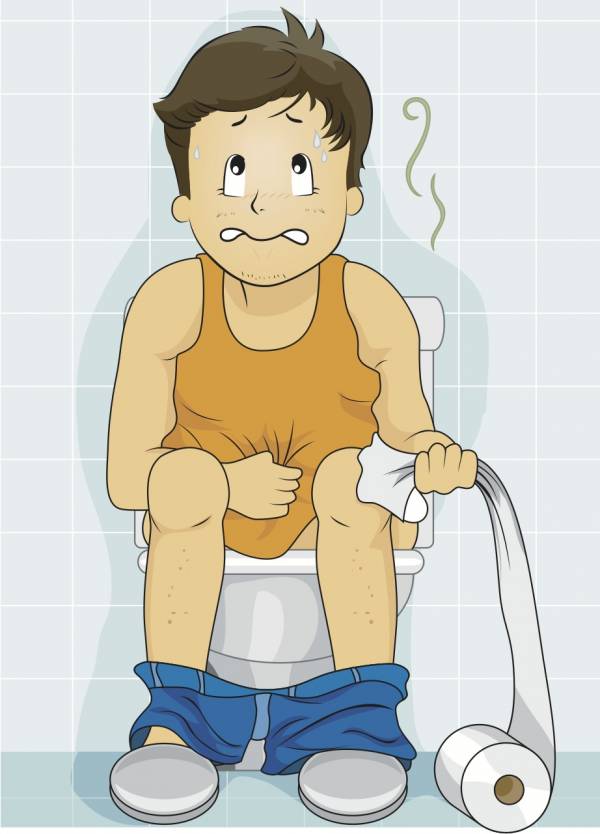Everybody poops. It’s true. I poop. Hopefully, you poop. Show me someone who doesn’t poop and I’ll show you someone who’s going to be sick very soon. Men poop. This much is obvious to anyone who has ever had to live with us. Women poop, too. This is an oft-confused fact. My future wife is the most beautiful, articulate, emotionally intelligent, kind, caring woman I’ve ever met. She also craps like a trucker. You can forget the whole “they only poop out little pink ribbons” deal too fellas, it’s complete hogwash.
Everybody poops. It’s true. I poop. Hopefully, you poop. Show me someone who doesn’t poop and I’ll show you someone who’s going to be sick very soon. Men poop. This much is obvious to anyone who has ever had to live with us. Women poop, too. This is an oft-confused fact. My future wife is the most beautiful, articulate, emotionally intelligent, kind, caring woman I’ve ever met. She also craps like a trucker. You can forget the whole “they only poop out little pink ribbons” deal too fellas, it’s complete hogwash.
Fantastic, now that we’ve all gotten our fecal focus front and center, let’s talk about one of the more taboo subjects in polite society – our bowel movements. Since what goes in must inevitably come out, the condition of your poop upon departure can be telling.
For the sake of this article we’re going to break things down into two categories and tackle constipation, hard stools, and difficulty going to the bathroom this week, while next week we look at the other, looser, more frequent, waterier side of the coin. Fair?
According to WebMd.com, you are considered constipated if you have two or more of the following for at least three months:
- Straining during a bowel movement more than 25% of the time
- Hard stools more than 25% of the time
- Incomplete evacuation more than 25% of the time
- Two or fewer bowel movements in a week
However, ask anyone who has not had a bowel movement for two days or more if they think their symptoms will be relevant in three months and they’ll answer with discomfort. In my professional opinion not having at least one bowel movement per day (given normal eating habits and minus any extraordinary personal circumstances or travel) is a warning to take a look at your diet and lifestyle.
Delayed bowel movements, hard stools, and incomplete evacuations (not pooping to your heart’s content) can all be caused by a number of factors, but more often than not, they’re a mix of the ingredients going into your mouth coupled with your own genetic predisposition.

One of the most common causes for constipation and hard stools is dehydration. During the journey through your small intestine, the last stop before blast off, your body will reabsorb necessary liquids from your stool back into your system. After this process, if there is not enough fluid left in your stool, passing it will be difficult.
If constipation is an issue for you, the first step in amelioration is increasing your water intake and decreasing any dehydrating factors such as alcohol, caffeine, and excessive exercise.
In addition to minimizing dehydration, adding the following will help increase the moisture level and maneuverability of your stool:
- Increasing your fat intake with nuts, seeds, and avocado
- Increasing your fiber intake
- Drinking liquid aloe vera
Fiber will not only add bulk to your stool, but is also capable of absorbing five times its weight in water, thus creates an easier to pass stool.
Often times it’s not the hardness or dryness of the stool that’s causing issue, it just seems like there isn’t enough “push” to get everything out in one sitting. Traditional Chinese Medicine refers to this as a lack of Qi, or simply not having enough energy to facilitate a proper elimination.
All of your body functions take energy, from breathing to thinking to walking to eliminating. Peristalsis, the motion your colon goes through to pass stool also takes energy. Some ways to increase peristalsis are:
- Light exercise (ask anyone in the Marine Corps about their morning runs)
- Eating dried fruit
- Massaging in small circles clockwise around the navel
- Drinking tea made from the Chinese Herb Da Huang or Rhubarb Root is a sure fire way to promote a bowel movement (contraindicated in pregnancy or nursing)
By managing your water intake and dietary choices, constipation can become a seldom-experienced issue, allowing you to spend more time out in the world and less time in the bathroom.
Stay tuned next week for the next exciting chapter of Everybody Poops: Part Two, where we look at constipation’s evil stepsister – loose stools.






